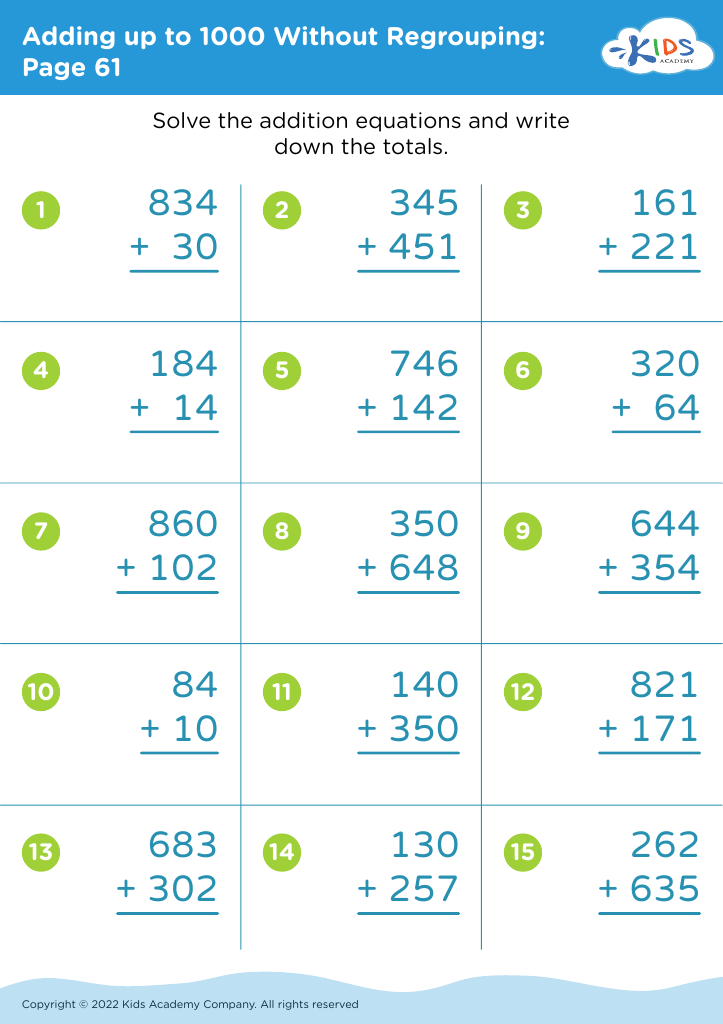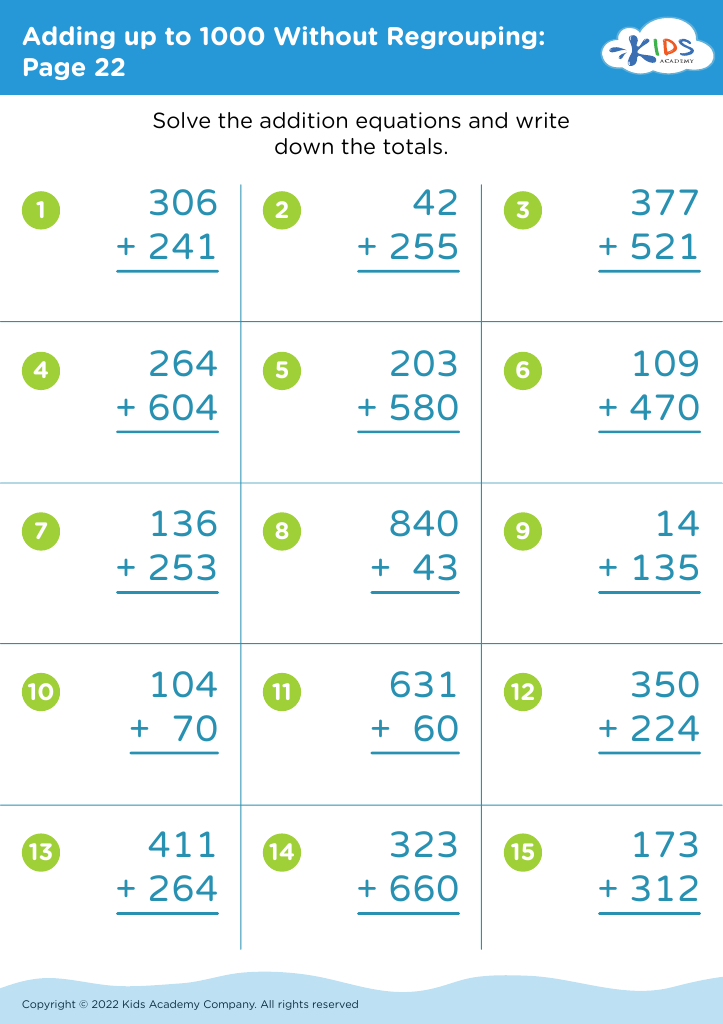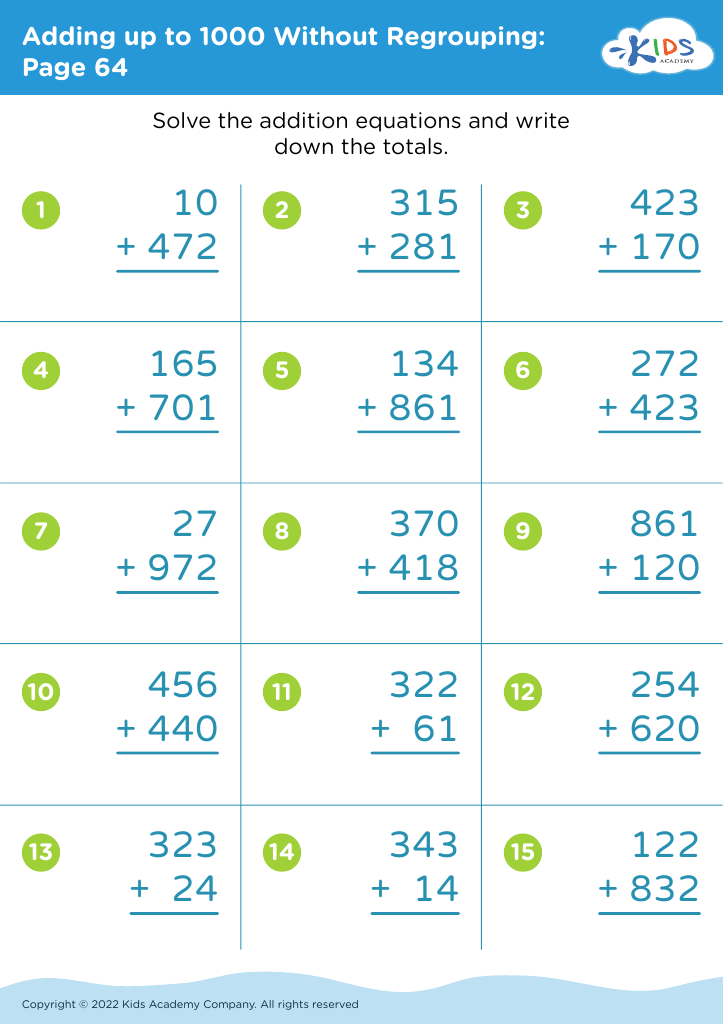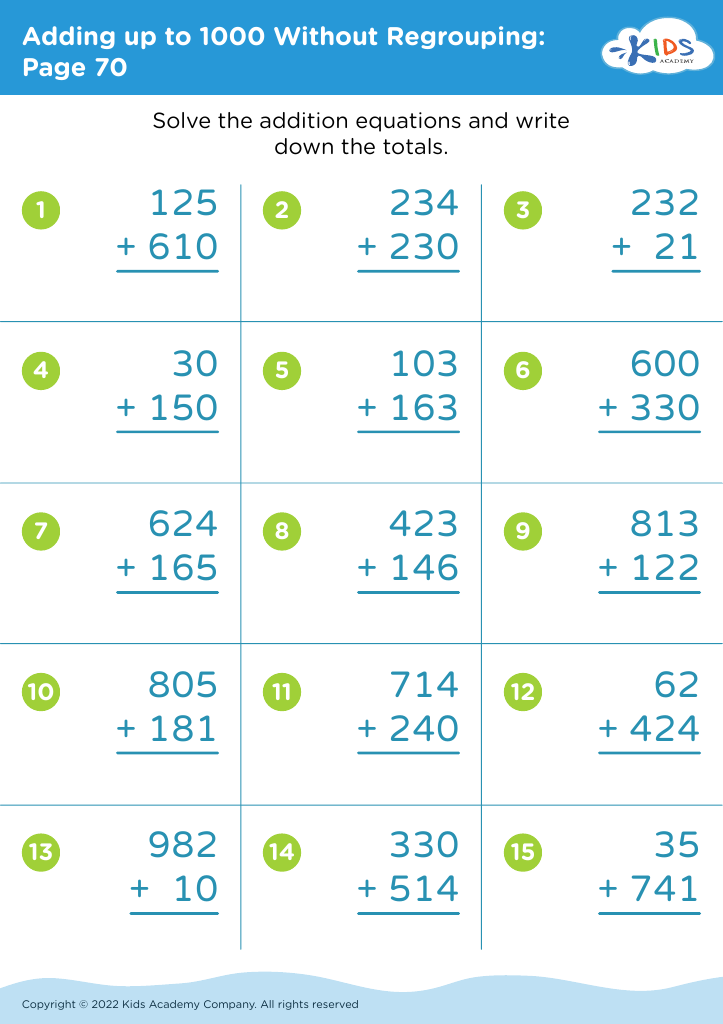Counting skills Adding up to 1000 Without Regrouping Worksheets for Ages 5-8
10 filtered results
-
From - To
Enhance your child's counting skills with our "Counting Skills Adding Up to 1000 Without Regrouping Worksheets" designed for ages 5-8. These engaging worksheets provide a fun and interactive approach to mastering addition without the need for regrouping. Children will enjoy colorful exercises that encourage critical thinking and reinforce fundamental math concepts. Perfect for classroom use or at-home practice, these worksheets help students build their confidence as they develop their ability to add numbers effectively. Equip your little learners with essential math skills while promoting focus and enjoyment in learning. Dive into the world of numbers today!
Counting skills, particularly adding up to 1000 without regrouping, are essential for children aged 5-8 as they lay the foundation for future mathematical understanding and problem-solving abilities. At this developmental stage, children are naturally curious and eager to learn the "why" and "how" of numbers. This skill not only enhances their numeracy but also encourages logical thinking and boosts confidence in their mathematical capabilities.
Parents and teachers should care about fostering these skills because they teach children how to handle larger numbers comfortably, preparing them for more complex operations in later grades. Mastering addition without regrouping reinforces place value understanding, helps with mental math, and enables children to tackle practical situations involving budgeting, time management, and basic accounting as they grow.
Moreover, counting and adding are integral components of many subjects, including science and economics. By nurturing a solid grasp of these skills early on, educators and parents can help ensure that children develop a positive attitude towards mathematics, combat math anxiety, and engage more actively in classroom settings. Consequently, skilled counting sets the stage for lifelong mathematical fluency, paving the way for academic success and everyday competence in real-world situations.




















